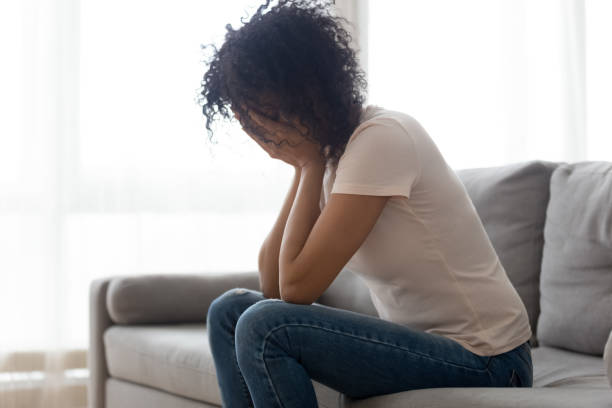
Here’s What Does—and Doesn’t—Cause Miscarriage
Can stress cause a miscarriage? What about sex, exercise, or certain foods? We spoke with experts to break down common myths about the causes of pregnancy loss.
About 15% to 20% of known pregnancies end in miscarriage, according to the American College of Obstetricians and Gynecologists (ACOG). But it might be reassuring to know that by the time you see a heartbeat on an ultrasound—usually by week six or seven—your chance of having a miscarriage drops to less than 5%, regardless of your age, says Michael Lu, M.D., associate professor of obstetrics and gynecology at the University of California, Los Angeles.
Despite how common miscarriages are, many people are surprisingly in the dark about what actually causes them, according to research from Ohio State University College of Medicine. “Much misinformation is shared among women or passed down from older generations,” says Jonathan Schaffir, M.D., an assistant professor of obstetrics and gynecology at Ohio State University College of Medicine, who authored the study.
What Actually Causes Miscarriages
It’s important to understand that there are many possible causes behind an unexpected, one-time miscarriage, and doctors often aren’t able to determine with certainty what factors were involved. And because the majority of people who experience a miscarriage and conceive again after go on to have a healthy pregnancy, it’s common to remain in the dark. (Things may look a little different when you’re dealing with recurrent miscarriage (two or more back-to-back pregnancy losses), at which point your doctor may be more likely to recommend doing some testing to pinpoint a possible cause and determine the best course of action.)
But here’s what experts do know about the most common causes of miscarriage and some of the factors that may increase a person’s risk of having one.
Genetics can cause a miscarriage
Up to 70% of first-trimester miscarriages and 20% of second-trimester miscarriages occur because of a glitch in the fetus’s genes, according to the March of Dimes. “When the chromosomes of the egg and those of the sperm fuse to form an embryo, they usually pair up correctly,” says Henry Lerner, M.D., an OB-GYN at Newton-Wellesley Hospital in Newton, Massachusetts. “But sometimes they get scrambled; if they’re paired incorrectly, the embryo stops developing.”
It doesn’t mean that anything’s wrong with the parents or their genes. Because chromosomal abnormalities in embryos are often random, one-time events, they’re unlikely to happen again.
Some health conditions can cause a miscarriage
Certain health conditions can cause miscarriage, especially those that restrict blood flow to the uterus. Chronic conditions that are associated with a higher risk of miscarriage include diabetes, thyroid disease, lupus, and heart disease. Hormone-related disorders and autoimmune disorders like antiphospholipid syndrome have also been linked to miscarriage. Certain types of uterine infections and sexually transmitted infections (STIs) can also play a role.
According to the March of Dimes, problems with the uterus or cervix such as fibroids and cervical insufficiency, which is when the cervix dilates too soon during pregnancy, can also lead to miscarriage. Other health-related factors include certain medical procedures such as amniocentesis and chorionic villus sampling (CVS), which carry a small risk of miscarriage (one of the reasons why these procedures are reserved for cases where the benefits outweigh the risks).
Caffeine can raise the risk of miscarriage
Indeed, pregnant people who consumed 200 milligrams or more of caffeine each day (about two cups of regular coffee or five 12-ounce cans of caffeinated soda) had twice the miscarriage risk as those who didn’t have any, according to a study by Kaiser Permanente published in the American Journal of Obstetrics and Gynecology.
But the risk associated with caffeine is not limited to the pregnant person. A remarkable study from 2016 published by the National Institutes of Health (NIH) demonstrated that the amount of caffeine consumed by both biological parents in the weeks leading up to conception had a significant impact on the risk level of miscarriage.
Drug and alcohol use can cause a miscarriage
Finally, excess drug and alcohol use can also lead to miscarriage. “Exposing a fetus to large amounts of these chemicals on a regular basis can cause miscarriage because they have a poisonous effect on all those developing cells,” says Dr. Schaffir.
According to the National Institute on Drug Abuse, using tobacco, alcohol, illicit drugs, or misusing or abusing prescription drugs can lead to miscarriage. Researchers note that the risk of stillbirth is raised by 1.8 to 2.8 times with tobacco use, 2.3 times with marijuana use, 2.2 times with stimulants or prescription drug use, and even 2.1 times greater risk of miscarriage from passive exposure to tobacco.
What Doesn’t Cause Miscarriage
While we know what things can cause or increase the risk of miscarriage, there are still plenty of myths surrounding miscarriage. We asked Dr. Schaffir to debunk some major misconceptions about miscarriages. “It’s important for women to understand that these are just old wives’ tales—and not only are they not true but in some cases, believing them can affect your health and well-being,” he says.
Can exercise cause miscarriage?
Exercising or picking up a (reasonably) heavy object—a grocery bag, a toddler, or the like—are extremely unlikely to cause a miscarriage. In fact, most experts agree that exercise during pregnancy, with your doctor’s approval, can lower miscarriage risk and make you and your baby healthier. That’s because exercise reduces stress, relieves aches and pains, lowers your risk of gestational diabetes, and even builds up stamina for labor.
Can stress cause miscarriage?
While some studies on stress and miscarriage are conflicting, Dr. Schaffir says that everyday tension or anxiety—tight deadlines at work or worrying about what labor will be like—have not been linked to pregnancy loss. What’s more, no studies have ever linked excessive bad moods to miscarriage, says Dr. Schaffir.
Things get murky when dealing with major stress, though. “We’re talking big things, like the death of a spouse or parent,” he explains, and even then, the link is not well established. Plus, pregnant people who are under extreme stress are also more likely to smoke, drink, or do drugs to cope, which can affect their risk of miscarrying.
Can food cause miscarriage?
Pregnant people should maintain a healthy and nutritious diet throughout pregnancy. While foods themselves don’t cause miscarriage, certain foods come with higher risks of food-borne illnesses like listeriosis (an infection caused by the bacteria Listeria monocytogenes).
Severe cases of listeriosis and other food-borne illnesses have been linked to miscarriage and pregnancy complications, which is why experts recommend avoiding certain foods during pregnancy. You should avoid, for example, raw meat and fish, soft cheese, unpasteurized cheese, and deli meat.
Can sex cause miscarriage?
In general, sex is considered a safe activity during pregnancy. The fetus is protected not only by amniotic fluid but also by the powerful muscles of the uterine walls. As long as the pregnancy is low risk, the fetus is developing on a typical track, and there are no concerns about pre-term labor or other complications, sex during pregnancy is likely safe according to the Mayo Clinic. If you’re concerned, however, don’t hesitate to ask your doctor or midwife.
Is Miscarriage the Parent’s Fault?
The vast majority of miscarriages occur because of chance chromosomal or genetic abnormalities in the fetus or, less commonly, hormonal imbalances or problems with the uterus or placenta, says Dr. Schaffir.
These factors are nothing that a parent-to-be has control over. “It’s natural for a woman experiencing loss to try to explain it in some way, even if that means blaming herself,” he says. “But all women need to know that most of the time, a miscarriage is completely random.” He adds that if you eventually want to try again, odds are you will conceive and have a healthy pregnancy.







